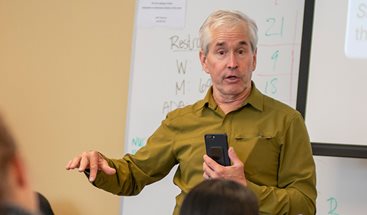
Online Master of Public Health
Become a Leader in Public Health
Full Time or Part Time / 18 Months or 27 Months / Online
The University of Washington Online Master of Public Health (MPH) program promotes leaders in public health. The program prepares students to tackle current and future public health challenges. Designed with working professionals’ schedules in mind, the program offers an 18-month, full-time accelerated track (six continuous quarters) and a 27-month, part-time track (nine continuous quarters).
The degree is offered by the UW Department of Health Systems and Population Health (HSPop) in the UW School of Public Health, one of the leading public graduate schools in the United States.

Learn From Expert Faculty
Our instructors are leading public health researchers and practitioners at the forefront of the latest developments in public health.

Learn on a Convenient Schedule
The mainly online format allows students to continue working while earning a Master of Public Health (MPH) degree.

Advance Your Career
Be prepared for a variety of roles. Our alumni work as public health practitioners, researchers in universities, and leaders in health care, policy-making organizations, and government agencies.

Prepare to Lead
Build a solid foundation in population health, data analysis, evidence-based research, health policy and program evaluation. Develop leadership skills with team-based learning.

“In the program we explored different ways that institutions, employers, health insurance, and health care systems breed health inequities, and how to shift conversations in health care toward addressing these issues. I brought that knowledge to my organization’s equity and social justice committee, which works on promoting equity for both public health employees and the residents in our programs.”
— Teah Hoopes, Alum
Research Program Manager
Public Health – Seattle & King County